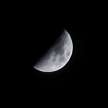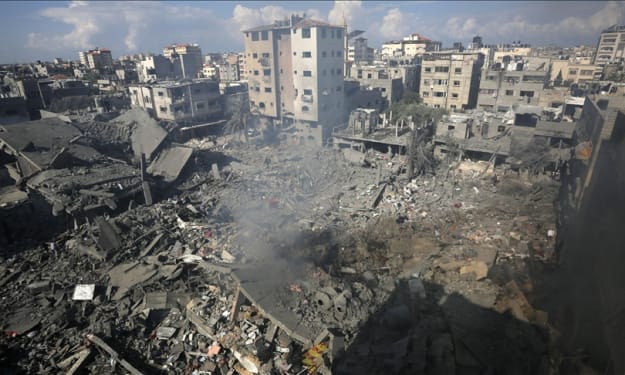
Hello! In light of what has been going on lately, and the increasing amount of Islamophobia that has resulted, I wanted to share some Islamic phrases and what they mean! Post 9/11, a lot of these phrases were misconstrued and misinterpreted, which led many people to associate them with terrorism and hatred of Western societies. However, these are just phrases used by Muslims in their everyday life that connect them with their spirituality and faith.
Note: These phrases are mostly associated with Islam, but are Arabic phrases that could be used by Arabs of any faith! They are not specific to just Islam. Every Muslim uses these phrases in Arabic because of the importance and significance of the language to the faith, but not all people who use these phrases are Muslim!
Note 2: I am not a scholar, nor do I claim to be. I am a revert Muslim who wants to share her faith (and debunk some myths about it) with the world. If I am wrong about any of these things, or if I could have worded it better, please let me know!
These are the phrases I will cover briefly: Allahu Akbar, Asalaamu alaikum, Bismillah, Alhumdulilah, SubhanAllah, Astaghfirullah, and La ilaha illa Allah.
There are many, many phrases used by Muslims, and I would love to cover them in a more extensive list, but for now these are just the basics!
I would also like to note that you may see alternative spellings to these, as Arabic has its own alphabet and these are just the versions in English transliteration (trying to spell out the right sounds of the word according to the alphabet used in English). I also want to point out that there are sounds used in Arabic that are quite different than those used in English, and transliteration often doesn't capture or represent those sounds very well. In other words, how they look in English might not be how they sound in reality!
So let's dive in!
Allahu Akbar
This is by far the most misunderstood phrase used by Muslims. I noticed that post 9/11, media often portrayed this phrase in a negative light or as something to fear, with the wrongful suggestion that terrorists would use the phrase before committing hateful acts.
Allahu Akbar directly translates to "God is the Greatest" or "God is Greater," as Allah means God in Arabic. It is not of a violent or destructive nature at all. It is a peaceful phrase, said in both happy and sad times, to express devotion to the faith and to the creator.
It is referred to as the takbir. Sometimes during anti-Islamophobic protests (or other occasions), a man leading the protest might say "Takbir!" and the others will say "Allahu Akbar" in response. Again, this is just an expression of devotion to God. It is non-threatening, and is really just a statement of love for the religion and the creator in recognizing that there is nothing equivalent to God.
It is also a significant phrase in the adhan (the Islamic call to prayer). Muslims pray at five designated times each day, and the adhan plays at the time of each prayer to remind them to pray. Allahu Akbar, in this context, signifies that God is Greater than whatever you may be doing at that moment, and that prayer is the most important thing you could be doing at that time.
Allahu Akbar is also a form of dhikr (remembrance of God). I might create another piece simply on dhikr and what it means, but in short form, Muslims will repeat phrases a certain number of times as an act of worship in remembrance of God. This is one of these phrases!
Asalaamu Alaikum
This phrase is an Arabic greeting, meaning "Peace be upon you." It is sometimes shortened to salam or salaam and there are many different ways to spell it in English transliteration, but they all mean the same thing. It can also be used at the end of a conversation as a goodbye, but is most commonly used when saying hello.
Bismillah
Bismillah means "In the name of God (Allah)." It is a form of dhikr! It is recommended for Muslims to say Bismillah before any action and to say Alhumdulilah (covered next) upon completing that action. It is most often said before praying, before reading Qur'an (the Islamic holy book), and before eating/drinking, as just a few examples. It is meant to signify that one does not do anything except in the name of God, and is used as a term of remembrance and connection to the creator.
Alhumdulilah
Alhumdulilah (more commonly spelt Alhamdulilah) translates to "Praise be to God." Along with Allahu Akbar, it is a form of dhikr. It is often used in happy moments, to reflect on and express gratitude to the creator, but can also be used in times of sadness to show that even though things might not be going well in someone's life, they are still appreciative of what they have.
SubhanAllah
SubhanAllah translates to "Glory be to God." It is also a form of dhikr. SubhanAllah is often used in awe of God's creations/abilities. For example, one might use this phrase upon spotting natural phenomenon or something arguably miraculous, such as seeing a caterpillar turn into a butterfly.
Astaghfirullah
Astaghfirullah translates to "I seek forgiveness in God" and is commonly used after the event of a mistake or sin. This is also a form of dhikr. It can be used in response to your own mistakes/sins or those of someone else, as you might see it in comment sections online. It is not so associated with terrorism, like other phrases, but because of its use in social media, I wanted to include it.
La ilaha illa Allah
La ilaha illa Allah is a declaration of faith, meaning "There is no God but God (Allah)." It can also be understood as "There is no one worthy of worship but God (Allah)." It is part of the shahada (declaration of faith) that is said when one reverts to Islam, as a statement of witness meaning "I bear witness that there is no God but Allah." It is also a form of dhikr.
These are just a few of the common phrases used by Muslims. In the future, I am hoping to create more works like these (inshaa Allah), such as:
- a list of conversational phrases (like asalaamu alaikum)
- a list of dhikr (though just the common ones; there are so many!)
- a list of other Islamic/Arabic terms (such as sunnah, hadith, jihad - which might be its own piece, hajj, umrah, salah, etc).
But I would also like to create more works about Islam, with topics including:
- the five pillars of Islam
- jihad (a very misunderstood concept in today's climate)
- prayer and fasting
- the significance of Arabic
- prophets
- Qur'anic verses and what they mean
- hadith
- and others!
If you are interested in or curious about Islam and want to learn more, please look out for more of my content! I am not a scholar and this is definitely not the best way to learn more, but I aim to cover the basics and provide a casual/informal space to learn and educate!
Jazak Allah Khair!
About the Creator
Belle
BEd Secondary student; English major
Writer? Sometimes; An amateur
Over 30k Palestinians murdered, 25k orphaned, 70k+ injured. Free Gaza.






Comments (3)
Ayat al-Kursi, also known as the Throne Verse, is a significant and revered verse from the Quran, specifically from Surah Al-Baqarah (2:255). This verse is renowned for its profound theological and spiritual significance in Islam. Ayat al-Kursi describes the greatness, knowledge, and authority of Allah, emphasizing His sovereignty over the heavens and the earth. It is often recited for protection and blessings, and many Muslims consider it a powerful supplication against harm. Due to its significance, Ayat al-Kursi is frequently memorized and recited by Muslims around the world as part of their daily prayers and spiritual practices.
Ayat al-Kursi, or the Verse of the Throne, is one of the most revered and profound verses in the Quran, encapsulating the essence of Allah's sovereignty, knowledge, and omnipotence. This sacred verse, found in Surah Al-Baqarah (2:255), holds immense significance for Muslims worldwide, offering guidance, protection, and a profound understanding of the majesty of the Creator.
GOOD